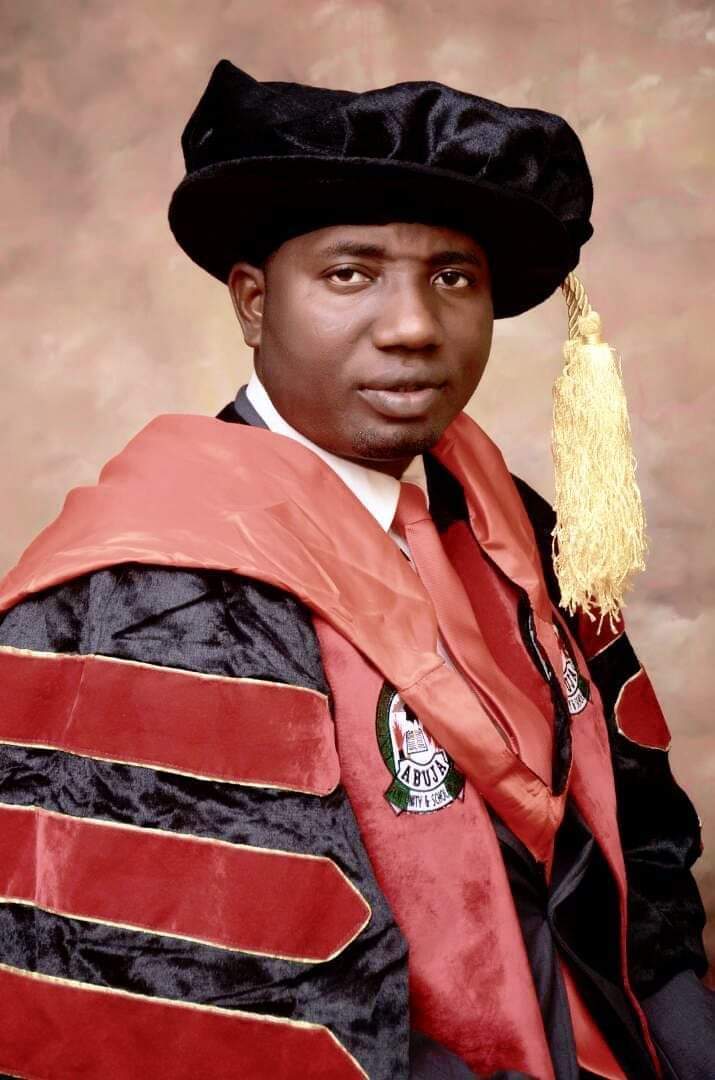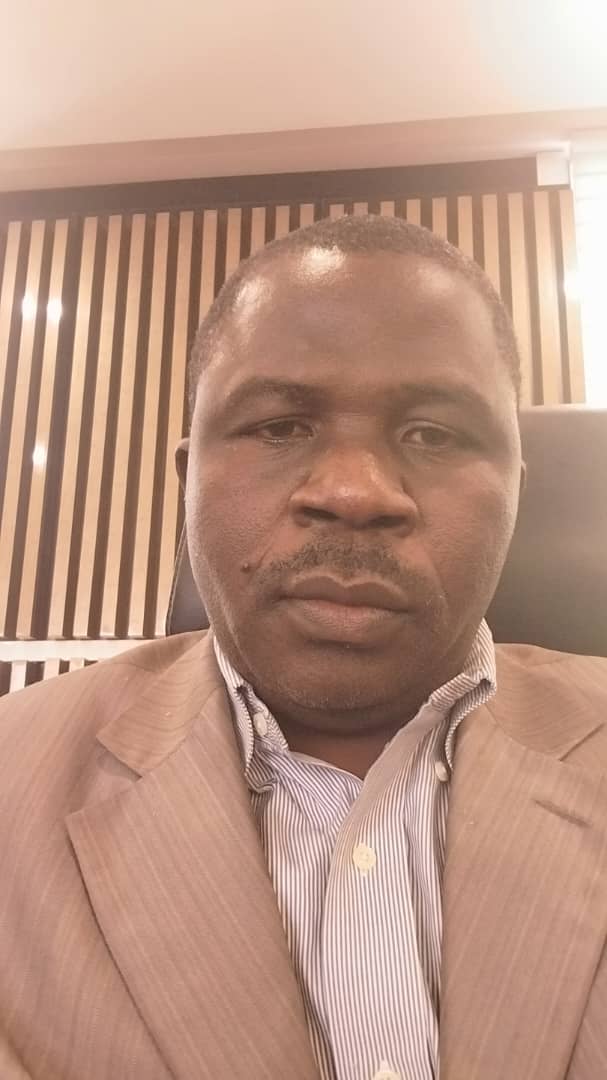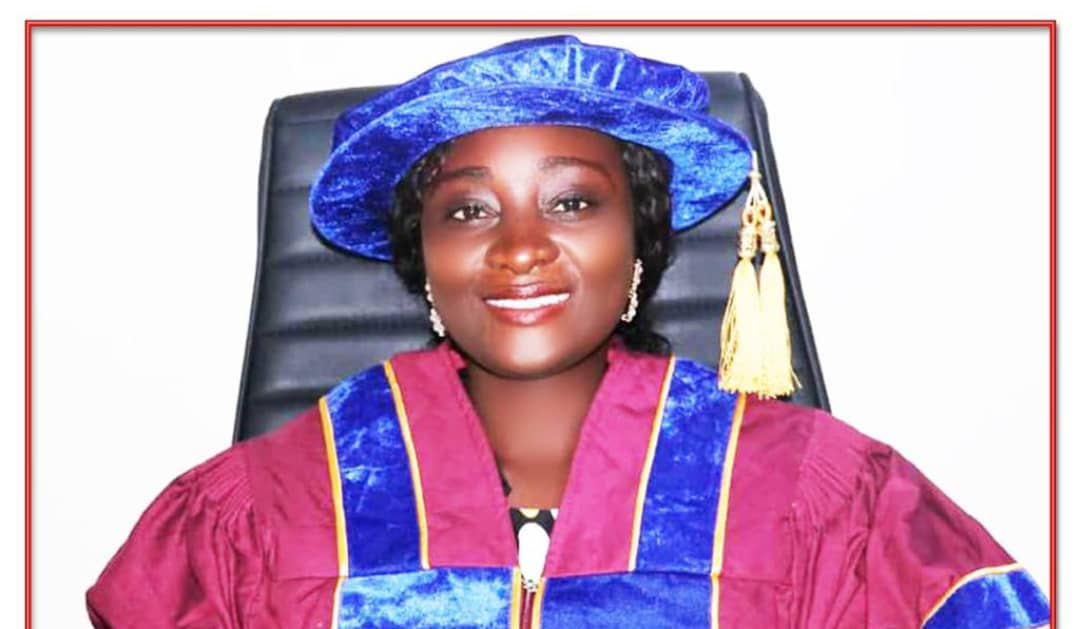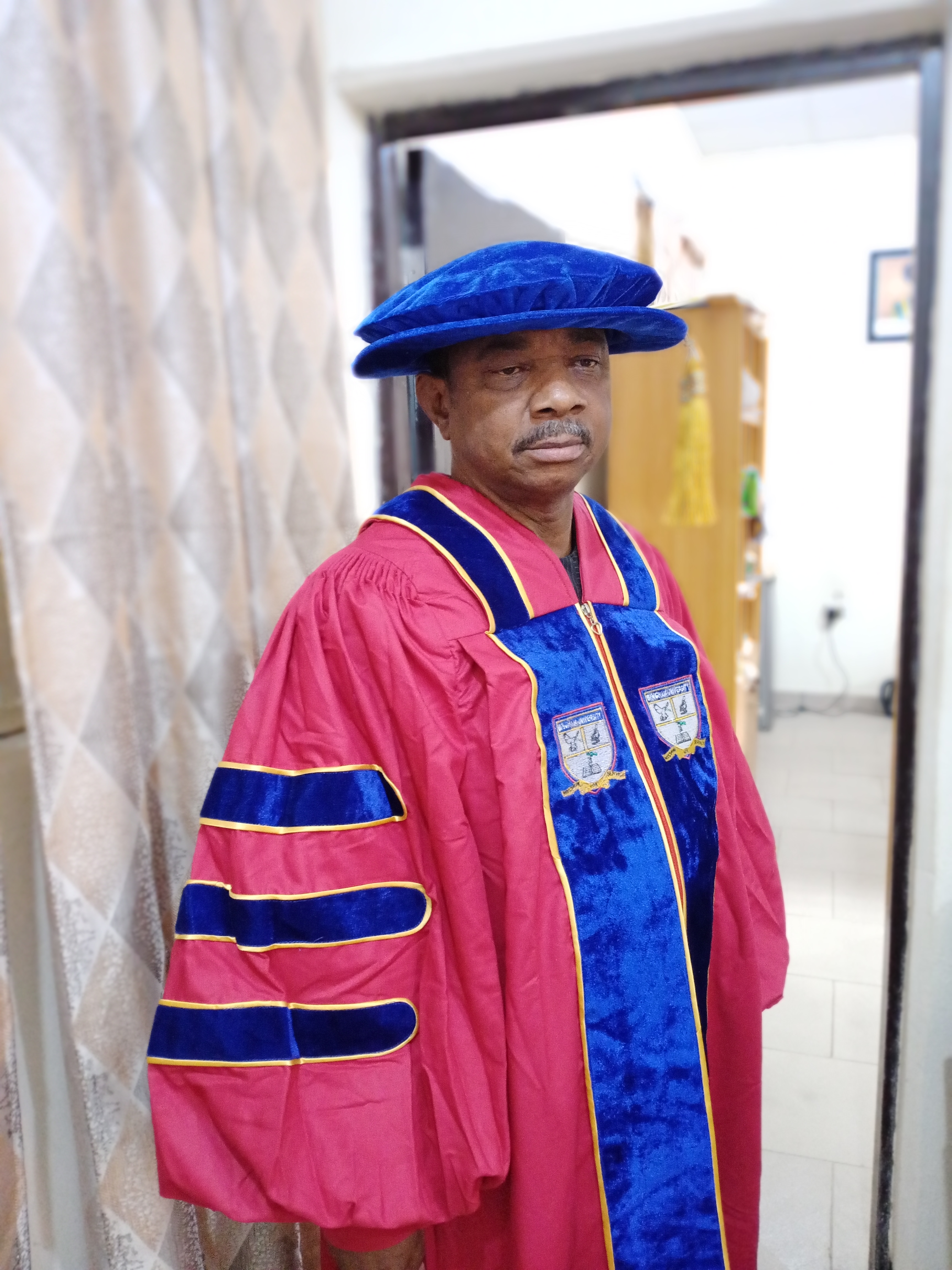The Faculty of Social Sciences, Bingham University was created in July 2019. It was one of the three faculties birthed by the unbundling of the former Faculty of Humanities, Social and Management Sciences (HSMS). The others were the Faculty of Administration and Faculty of Arts. The Faculty became fully operational at the commencement of the 2019/2020 Academic Session in September, 2020 with (5) departments namely Economics, Library and Information Science, Mass Communication, Political Science and Sociology. However, further unbundling of the degree programmes by the National Universities Commission (NUC) under its new Core Curriculum and Minimum Academic Standards (CCMAS) which took effect from the 2023/2024 Academic Session, the Department of Mass Communication ceased to be a member department of the faculty, having assumed the status of a new Faculty of Communication and Media Studies. So, effectively, the Faculty of Social Sciences has four departments – Economics, Library and Information Science, Political Science and Sociology, and plans to introduce a Department of Psychology in the nearest future.
The edit establishing Bingham University, Karu was enacted in 2005. The University took off in Jos at ECWA Theological Seminary as its temporary campus in 2005/2006. The faculty of Humanities Social and Management Sciences (HSMS) started as a college in 2006.
The Department of Economics is one of the pioneer Departments of the University and its program took off in 2005/2006. The Department runs a four (4) year program leading to the award of B.Sc. degree in Economics. Guided by the philosophy behind the establishing the University that is “Creating Christ –centered graduates”. The program is designed to produce graduates, who are equipped with specialized knowledge of the social sciences and make a meaningful contribution to the growth and development of the economy, as well as project our people from poverty and ignorance.
The Department started with 14 student and 2 academics staff under the pioneering leadership of Gabriel Akogwu (2006-2008). The headship was succeeded by Dr. Abimiku (2009) who came on sabbatical. Then it went back to Gabriel Akogwu (2010-2013): Dr. Michael S. Akpan (2013-2015), Dr. John O. Aiyedogbon (2015 - 2019), Late Assoc. Prof. Abayomi Awujola (2019-202 and currently Dr. Marvelous Aigbedion.
Since its inception, the Department has been guided by the philosophy of the University; in creating Christ centered graduates. The programme was design to produce graduates who are equipped with specialized knowledge in economics. Christian foundations together with broad knowledge of the Social Sciences and make meaningful contributions to the growth and development of the Economy, as well as protect our people from poverty and ignorance. The Department has produced sound and intelligent undergraduate students on Bachelor of Science Degree in Economics (B.Sc. Hons. Econs) from 2005/2006 - 2022/2023 academic sessions. The Department started Postgraduate programs in 2020/2021 academic and Department has produced students in Ph.D. Economics, M.Sc. Economics, Master in Financial Economics and Master in Public Sector Economics. Also, the Department has commenced part-time program in Bachelor of Science Degree in Economics (B.Sc. Hons. Econs) and admission is open for 100 level and 200 level (Direct Entry).
The Department has gotten full accreditation to date. Some of the 21st century skill expectations of the programme are captured in the new 100 level courses approved by NUC which are: data and entry management, philosophy and logic economics, entertainment and ceremonial economics, sports economics, economics of tourism and critical thinking.
The edit establishing Bingham University, Karu was enacted in 2005. The University took off in Jos at ECWA Theological Seminary as its temporary campus in 2005/2006. The faculty of Humanities Social and Management Sciences (HSMS) started as a college in 2006.
The Department of Economics is one of the pioneer Departments of the University and its program took off in 2005/2006. The Department runs a four (4) year program leading to the award of B.Sc. degree in Economics. Guided by the philosophy behind the establishing the University that is “Creating Christ –centered graduates”. The program is designed to produce graduates, who are equipped with specialized knowledge of the social sciences and make a meaningful contribution to the growth and development of the economy, as well as project our people from poverty and ignorance.
The Department started with 14 student and 2 academics staff under the pioneering leadership of Gabriel Akogwu (2006-2008). The headship was succeeded by Dr. Abimiku (2009) who came on sabbatical. Then it went back to Gabriel Akogwu (2010-2013): Dr. Michael S. Akpan (2013-2015), Dr. John O. Aiyedogbon (2015 - 2019), Late Assoc. Prof. Abayomi Awujola (2019-202 and currently Dr. Marvelous Aigbedion.
To graduate, a student must have:

Dr. Marvelous Aigbedion is the current Head of Department of Economics at Bingham University, Karu.
| Course code | Course Title | Units | Status | LH | PH |
|---|---|---|---|---|---|
| GST 111 | Communication Skills in English | 2 | C | 15 | 45 |
| ECO 101 | Principles of Economics I | 2 | C | 30 | |
| ECO 103 | Introductory Mathematics I | 2 | C | 30 | |
| BHU-ECO 105 | Introductory Statistics I | 2 | C | 30 | |
| BHU-ECO 107 | Philosophy and Logic of Economics | 3 | C | 45 | |
| BHU-ECO 111 | Entertainment and Ceremonial Economics | 2 | C | 30 | |
| BHU-ECO 117 | Sports Economics | 2 | C | 30 | |
| BHU-ECO 119 | Critical Thinking | 2 | C | 30 | |
| TOTAL | 17 | ||||
| Course code | Course Title | Units | Status | LH | PH |
|---|---|---|---|---|---|
| ECO 102 | Principles of Economics II | 2 | C | 30 | |
| BHU-ECO 106 | Data Entry and Management | 2 | E | 15 | 45 |
| ECO 104 | Introductory Mathematics II | 2 | C | 30 | |
| BHU-ECO 118 | Economics of Tourism | 3 | C | 45 | |
| BHU-BST 104 | Christian Belief | 2 | E | 30 | |
| GST 112 | Nigeria People and Culture | 2 | C | 30 | |
| TOTAL | 13 | ||||
Grand total units for 100 level: 30
A candidate without any previous Master’s Degree in the discipline into which admission is sought shall be admitted only to a postgraduate diploma or Master’s Degree programme primarily by coursework. Specific requirements include a good honours bachelor’s degree in Economics. The degree should normally not be below second-class honours, lower division. Also, a professional qualification approved by the Senate on the recommendation of the Board as being equivalent to a good honours bachelor’s degree. The professional qualification must be in the subject/discipline of Economics.
Admission in the above programme shall be at least a master’s degree in Economics and any related discipline. A candidate shall be recommended for admission if he/she has a cumulative score of 60% and above in the final assessment results for the master’s degree. And a score of 60% and above in the research project. While candidates with cumulative score of between 55-59 in the master’s degree programme can be admitted for a MPhil degree. An academic transcript for the master’s degree shall be required.
To graduate, a student must have:
The philosophy of the Programme is to train graduates with the requisite skills and competencies to function in the 21st-century library and information environment. Graduates of the programme should be capable of getting libraries and information centres to communicate in space and time to respond to the dynamic information needs of society.

Mr. Lamidi Abel Dare is the current Head of Department of Library and information science at Bingham University, Karu.
Opportunities abound in all sectors of the economy, both private and public. Graduates are needed in educational institutions; ministries, departments and agencies; in industries, such as manufacturing entities, banks, law firms, etc.; outside the shores of this country; individuals and so. Graduates are required everywhere provided they have the required competencies which this course can impart to them.
There are two modes of entry to the Bachelor of Library and Information Science Degree Programmes.
In all cases, whether by Direct Entry or UTME, the following shall apply:
Students must have been offered a total of 120 credit units of requisite courses and meet the general university requirements for graduation.
| Course Code | Course Title | Units | Status | LH | PH |
|---|---|---|---|---|---|
| GST 111 | Communication in English | 2 | C | 15 | 45 |
| LIS 111 | Introduction to Library and Information Science | 2 | C | 30 | - |
| LIS 121 | Information User | 2 | C | 30 | - |
| LIS 125 | Introduction to Library Application Packages | 2 | C | 15 | 45 |
| BHU-LIS 123 | Library and Society | 2 | C | 30 | - |
| BHU-LIS 105 | Technology for Information Professionals in Library and Information Science | 2 | C | 30 | - |
| BHU-CMP 103 | Introduction to Computer Applications, E-learning and the Bingham LMS | 2 | C | 30 | - |
| BHU-MCM 121 | Arts and Entertainment Journalism and Fundamental of Broadcasting | 2 | E | 30 | - |
| TOTAL | 16 |
| Course Code | Course Title | Units | Status | LH | PH |
|---|---|---|---|---|---|
| GST 112 | Nigerian Peoples and Culture | 2 | C | 30 | - |
| LIS 112 | Basic Skills for Library and Information Work | 2 | C | 30 | - |
| LIS 114 | Introduction to Digital Libraries | 2 | C | 15 | 45 |
| BHU-LIS 102 | Information Storage and Retrieval | 2 | C | 30 | - |
| BHU-LIS 128 | Information Resources and Services | 2 | E | 30 | - |
| BHU-BST 104 | Christian Belief II | 2 | C | 30 | - |
| BHU-SOC 118 | Sociology of Science and Technology | 2 | E | 30 | - |
| TOTAL | 14 |
The Political Science department at Bingham University, New Karu took off in May 2006 and was one of the foundational academic programmes that commenced at the University’s temporary site in the Jos ECWA Theological Seminary (JETS). The programme ran for two academic sessions at JETS before it moved (along with other foundational academic programmes) to the permanent site of the University in March 2008. The department has graduated seventeen (17) sets of graduates who are proud Alumni since inception. The Department is currently headed by Dr. Sabo Robert with staff strength of 16. The Department has a full NUC accreditation.
Political science basically deals with the scientific study of Politics and is organized into five broad areas of specializations namely; Political Theory, Comparative Politics, Political Economy, Public Administration and International Relations. It is essentially concerned with the study of state and non-states institutions and the interconnections between them. As an interdisciplinary field of study, political science shares a lot with other programmes in the social sciences, humanities and the natural sciences, including concepts, theories, and methodological orientations.
The philosophy and mission of the B.Sc. (Political Science) programme is to produce graduates with a critical mind, fully equipped with requisite theoretical, methodological and analytical ability and skills to analyze, comprehend, predict and appreciate the factors that shape and mould power relationships in an ever-changing socio-political environment in a globalizing world. The course, therefore, seeks to produce graduates that are adequately equipped in the knowledge, understanding and application of notable concepts, theories, methodologies and analytical tools in political science to solve core societal problems, notably political stability, economic development and governance issues. Graduates of Political Science are well-equipped for job opportunities in the Public Service at all levels (Federal, State and Local Governments), Foreign Service (Diplomats/Ambassadors), International Organisations (United Nations, African Union, ECOWAS and many others), Educational Institutions, Security Agencies, Industries, Civil Society Organisations (CSOs)/Non-Governmental Organisations (NGOs), and Self-employment.

Dr. Sabo Robert is the current Head of Department of Political Science at Bingham University, Karu.
In addition to UTME score, the candidate should possess five credit passes in Mathematics, English Language, Government/Civic Education and any other two Social Sciences/Arts subjects. Subject combinations for the UTME are Use of English, Government/Civic Education and any other two Social Sciences/Arts subjects.
Five SSCE-credit passes in Mathematics, English Language, Government or History and two other Social Sciences/Arts subjects at not more than two sittings. In addition, candidates must possess credit passes in three relevant subjects at the advanced level in the General Certificate of Education or its equivalent. An IJMB score of a minimum of 6 points. Advanced level or a National Diploma in a relevant field may be admitted into the 200 Level to study Political Science. Holders of Higher National Diploma (HND) in relevant field may also be admitted into 300 - Level if they have Upper Credit or Distinctions.
Students who have satisfied the O’level requirements and have a minimum CGPA of 2.40 in a Department of Political Science from any certified University in Nigeria or abroad is eligible for a transfer into 200 level.
Total minimum credit units required for graduation is 120 and 90 or 60 for students admitted through UTME and Direct Entry admissions respectively. In order to graduate, a student must pass all compulsory and required courses. The minimum credit requirements for Direct Entry students are to be determined by their entry level.
To be eligible for award of the B.Sc. Political Science, a candidate must have satisfied the following conditions:
The following table depicts the course structure and synopsis for the levels and semesters of the B.Sc. POLITICAL SCIENCE Programme. The abbreviations below are not all used in the table below but when used they are explained as follows:
| Course Code | Course Title | Units | Status | LH | PH |
|---|---|---|---|---|---|
| GST 111 | Communication in English | 2 | C | 30 | - |
| BGST121 | Fundamentals of Library Literacy, ICT And Study Skills | 2 | C | 30 | - |
| BCMP 103 | Introduction to CMP Application, E-Learning and Bingham LMS | 2 | C | 15 | 15 |
| POL 101 | Introduction to Political Science | 2 | C | 30 | - |
| POL 103 | Organisation of Government | 2 | C | 30 | - |
| POL 105 | Nigerian Constitutional Development | 2 | C | 30 | - |
| BHU-POL 107 | Introduction to Political Philosophy | 3 | C | 45 | - |
| Course Code | Course Title | Units | Status | LH | PH |
|---|---|---|---|---|---|
| GST 112 | Nigerian Peoples and Culture | 2 | C | 30 | - |
| BHU-BST 104 | Christian Belief | 2 | C | 30 | - |
| POL 102 | Introduction to African Politics | 2 | C | 30 | - |
| POL 104 | Nigerian Legal Systems | 2 | C | 30 | - |
| BHU-POL 106 | The Citizen and The State | 3 | C | 45 | - |
| BHU-POL 108 | Introduction to Local Government | 3 | C | 45 | - |
| BHU-POL 110 | Introduction to Comparative Politics | 3 | C | 45 | - |
Grand total units for 100 level: 32

The Department of Sociology is one of the pioneer departments of Bingham University. The programme in Sociology took off in the 2005/2006 academic session.
The philosophy underlying the Sociology degree programme is to produce a crop of graduates equipped with appropriate knowledge to make their contribution to the development of Nigeria, Africa, and the global community, having been exposed to a broad foundation of knowledge in the fields of Social Sciences in general and the various sub-fields of Sociology in particular. Our students are exposed to knowledge in a wide array of specialized areas like Criminology, Industrial Sociology, Gerontology, Demography, Gender Studies, Development Studies, Medical Sociology, Research Methodology, and Statistics amongst others.
In addition, the programme at Bingham University seeks to produce graduates who are morally upright in accordance with the philosophy of the University. Our students are trained to become world-class Sociologists, who are not only equipped with specialized knowledge in Sociology but also with Christian principles based on the word of God to make a mark in their generation.

Dr. Philomina Attah is the current Head of Department of Sociology at Bingham University, Karu.
For Admission into the Bachelors Programme, candidates are required to fulfill one of two conditions listed below (i.e., either A or B):
Entry Requirement:
O’LEVEL Entry Requirement: A minimum of five (5) credit passes in each of the following: Mathematics, English Language, Economics, Government, and one (1) other Art or Social Science Subject.
| Course Code | Course Title | Credit Unit | Status |
|---|---|---|---|
| GST 111 | Communication Skills in English | 2 | Compulsory (C) |
| SOC 101 | Introduction to Sociology I | 2 | C |
| SOC 103 | Introduction to African Societies & Cultures | 2 | C |
| SOC 105 | Elements of Scientific Thought I | 2 | C |
| BHU-SOC 113 | Introduction to Statistics | 3 | C |
| BHU-SOC 119 | Sociology of Education | 3 | C |
| BHU-CMP 103 | Introduction to Computer application, E-Learning and Bingham Learning Management System. | 2 | C |
| BHU-BST 103 | Christian Belief I | 2 | C |
| Course Code | Course Title | Credit Unit | Status |
|---|---|---|---|
| GST 112 | Nigerian Peoples & Cultures | 2 | Compulsory (C) |
| SOC 102 | Introduction to Anthropology | 2 | C |
| SOC 104 | Introduction to Psychology | 2 | C |
| SOC 106 | Introduction to Sociology II | 2 | C |
| SOC 120 | Elements of Scientific Thought II | 2 | C |
| BHU-SOC 118 | Sociology of Science and Technology | 3 | Elective (E) |
| BHU-BST 104 | Christian Beliefs II | 2 | C |

Main Campus
Km 26 Abuja - Keffi Express Way